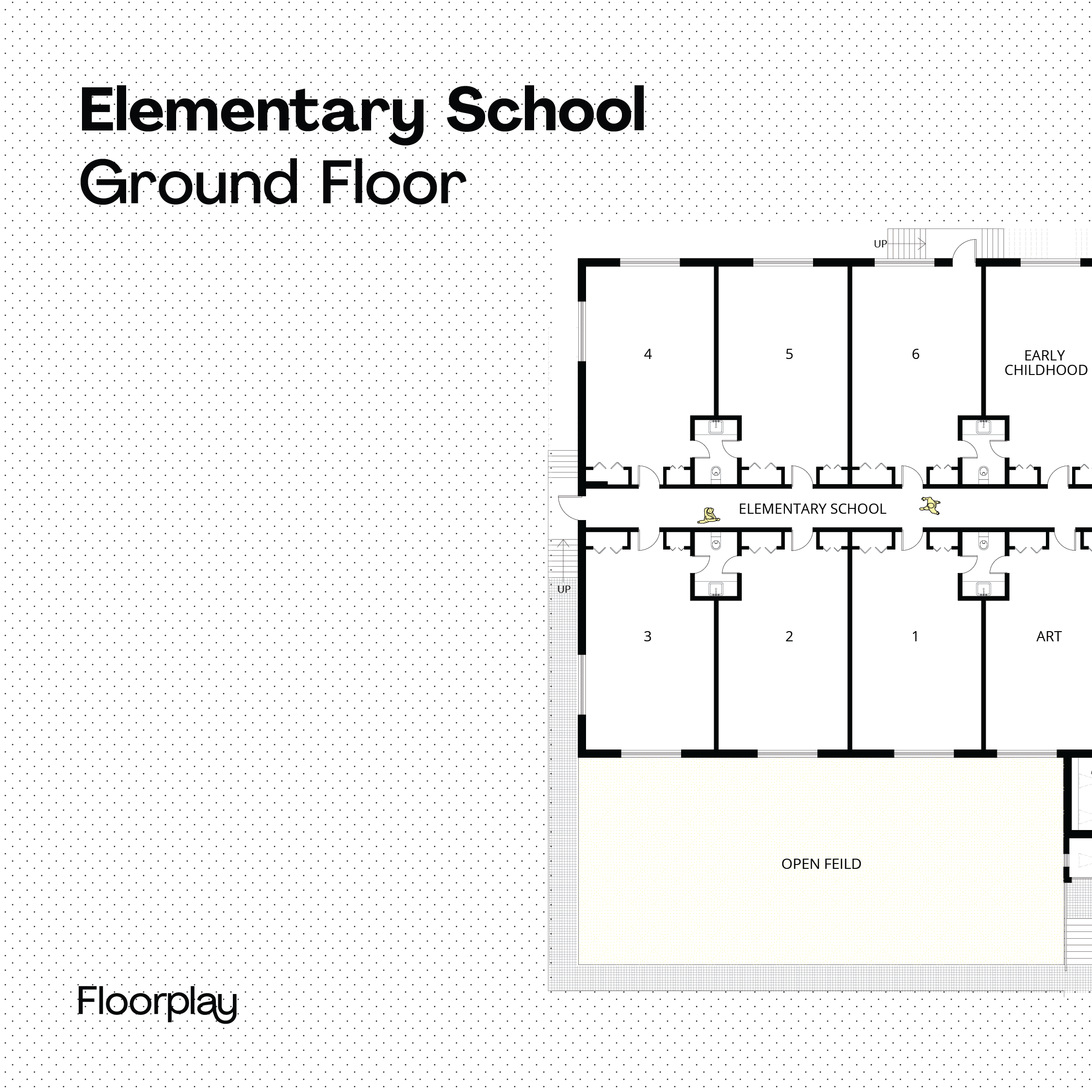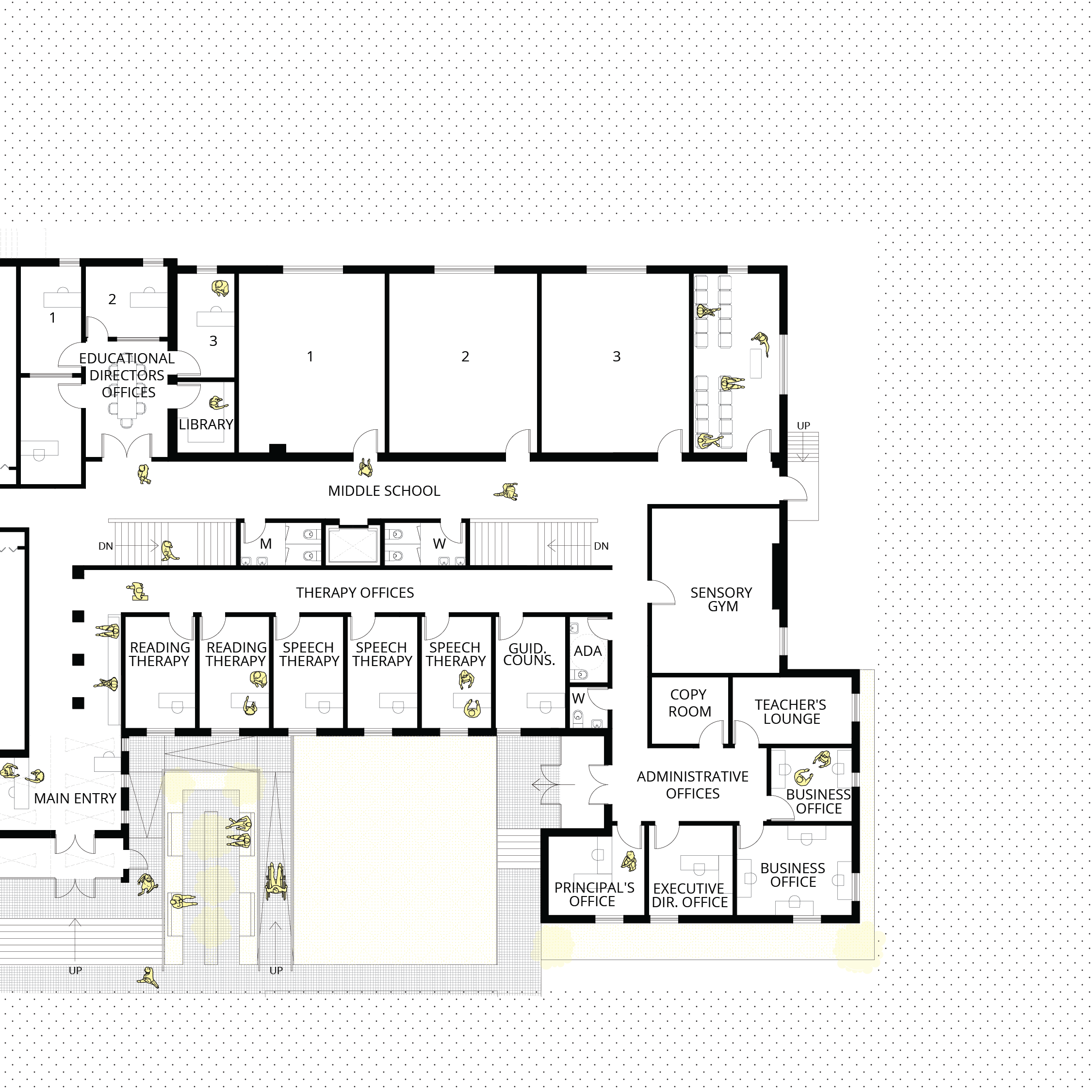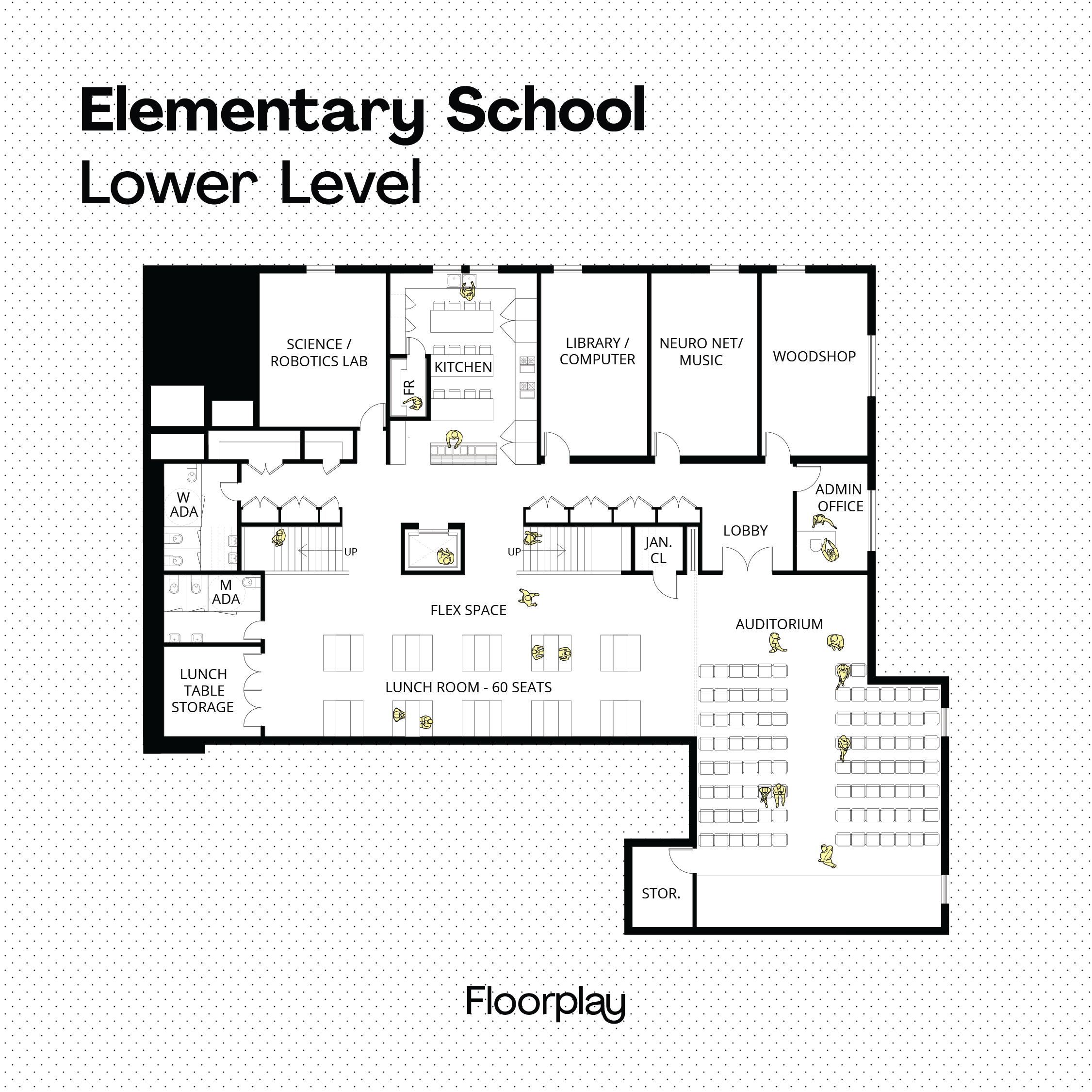Batya Cohen
“I've always found the architecture industry quite intimidating and opaque, and that's coming from someone in the field. I imagine those who admire architecture or are seeking architectural services to feel the same way. The vision for Floorplay is to be an architectural design studio that is accessible, non-intimidating, and transparent with our creative process by leveraging social media to connect and engage with designers and design enthusiasts around the world.”
#WomenWhoBuild meet Batya Cohen, Founder, Floorplay
Born and raised in New York City, Batya Cohen is a trained architectural designer, mother, and the Founder of Floorplay, an architectural design studio.
ArchNative sat down with Batya to discuss Floorplay; a woman-owned practice that launched at the height of the pandemic in 2020.
Tell us about yourself.
My name is Batya Cohen. I was born and raised in New York City. Trained architectural designer and Founder of Floorplay, an architectural design studio. If you know me, you know I am a floor plan nerd.
If you could describe yourself in three words, what would they be?
Floor Plan Woman
What inspired you to pursue architecture?
As a child, I constantly rearranged the furniture in my room - the various ways I could alter the built environment around me intrigued me. When it came time for me to decide which college to apply to, I decided to lean into my interests – design and architecture. When I was accepted into Pratt Institute, I was ecstatic, granted, I didn’t fully comprehend that I was signing up for endless nights in the studio.
How do you believe architecture school has impacted and shaped your career?
I haven't had a client as intimidating as my architecture professors on the day of a design review (so far, at least!). All jokes aside, the biggest lesson I've learned from my experience in architecture school was to "just get it done." It sounds rudimentary, but I've realized that much of architecture school is about being thrown into the deep end and figuring out your way of doing things. Professionally, it’s very much the same concept; thus, starting Floorplay didn't feel as daunting.
Describe your career evolution.
From the moment I was accepted into architecture school, I decided I wanted to expose myself to as much of the industry as possible. Two summers before I began studying at Pratt, I began interning and was hired full-time at the end of my senior year. Each internship offered a new perspective on the field. From learning how to organize a materials library, refining my Revit skills, observing architects sketch millwork details, and drafting several kitchen and bath designs, I learned the importance of organization, hard work, flexibility, and teamwork. Ultimately, those takeaways led to the inception of Floorplay and the methods I use to run my business and team.
What inspired Floorplay?
The idea for Floorplay sprouted during the height of the Pandemic. Late one night, I was working on furniture layouts for a new apartment my husband and I were renting. My husband was standing over my shoulder and thought I was crazy - my computer screen was filled with 50 iterations of furniture floor plans. He suggested that I turn this into a part-time job, so we came up with the name, and I began marketing Floorplay as a consultancy that could lay out your furniture for your next apartment. What started as a side gig became a fast-growing architectural design company offering much more than furniture layouts
Where do you seek inspiration?
It's funny, it's when I'm seeking inspiration that I rarely find it. The moments that I'm just existing - listening to music, watching a movie, reading, walking, or observing someone's home that catches my attention. When my mind is at rest, I can see clearly and take in the environment around me. Unfortunately, this sometimes means I am messaging my team on a Saturday night at 9 pm with ideas!
How do you define your creative process?
My creative process generally begins with collaboration with the client. In architecture school, we are given project prompts with parameters at the beginning of each design studio. I like to think that my first meeting with a client is the making of a project's prompt and parameters. For example, if we're working on a residential project, I ask my client to explain how they occupy their current home. What is their routine in the morning? What is the first room they walk into when getting home from work? Where do they find themselves relaxing in their home? From there, we develop project goals and guidelines, allowing the project to take off.
What do you see for the future of Floorplay?
I've always found the architecture industry quite intimidating and opaque, and that's coming from someone in the field. I imagine those who admire architecture or are seeking architectural services to feel the same way. The vision for Floorplay is to be an architectural design studio that is accessible, non-intimidating, and transparent with our creative process by leveraging social media to connect and engage with designers and design enthusiasts around the world.
Additionally, one of the most important values for the company is to create a work environment where my team can flourish creatively. The company is not named after me for a reason - I don't claim to have all the answers. The goal is to grow the company to a national brand that can service cities throughout the country, with the mission of making design accessible to all.
How do you balance motherhood with owning a business?
Ha! Who knows! It changes every day. However, from my experience thus far, the main puzzle piece is accepting that I cannot do everything alone. Delegating has been a big lesson and hurdle for me - at home or in the office. I can be more productive when I let go a little but don't get me wrong, I haven't solved it, and there is a new challenge every day, but it's definitely worth the hard work. I hope my daughter can be proud of what I've built when she's older.
What is one piece of advice you would give your younger self?
I would tell my younger self that most people in this field started in the same place and that I belong just as much as anyone else. Imposter syndrome might creep but using that feeling to motivate myself, to learn more, work harder, and ultimately, prove my capabilities.
Do you have advice for women entering the field?
If you think of yourself as limited or undeserving, others will too. No one will be as dedicated to your career's success as you are - this is true for both women and men. Don't expect favors, either! As long as you stay devoted to your craft, deliver and provide value to those around you, you will succeed.



Interview Conducted by:
Natalie Dargham




